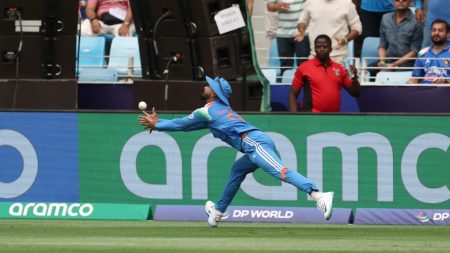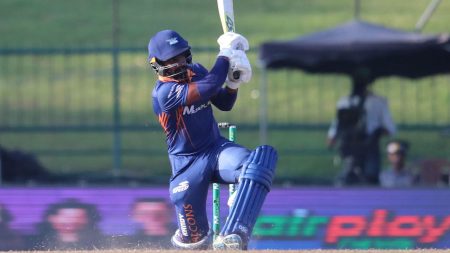A Rare Dismissal in First-Class Cricket
Pakistan’s domestic cricket witnessed a rare and unusual event during the President’s Tournament final when Saud Shakeel, a batter for State Bank of Pakistan, became only the seventh player in first-class cricket history to be timed out. On the second day of the final, two quick wickets fell in rapid succession, leaving Shakeel unprepared. Amad Butt, the captain of the opposing side PTV, noticed Shakeel’s tardiness and promptly appealed. The umpires, adhering to the rules that require a batter to be ready within three minutes, agreed with the appeal, leading to Shakeel’s dismissal.
The Swift Fall of Wickets
The events leading to Shakeel’s dismissal were as dramatic as the dismissal itself. Umar Amin and Fawad Alam fell to the fast bowler Muhammad Shahzad within two deliveries, putting State Bank of Pakistan in a precarious position. The quick succession of wickets left Shakeel unprepared, and he was not at the crease when he was expected to be. Despite his efforts to reach the crease, the umpires ruled that he had not met the required three-minute window, leading to his unusual dismissal. This rare occurrence highlights the importance of being prepared and quick to react in the high-pressure environment of cricket.
The Last Timed-Out Dismissal in International Cricket
The most recent timed-out dismissal in high-level cricket occurred during the 2023 World Cup match between Sri Lanka and Bangladesh. Angelo Mathews, a prominent Sri Lankan cricketer, became the first and, until now, the only player to be dismissed in this manner during an international match. The dismissal came when Shakib-al-Hasan successfully appealed for a timed-out call after Mathews failed to reach the crease in time. This event garnered significant attention and brought the seldom-seen rule back into the spotlight, emphasizing its rarity and the potential for unexpected outcomes in cricket.
The Aftermath of Shakeel’s Dismissal
Following Shakeel’s rare dismissal, Irfan Khan, the next batter for State Bank of Pakistan, came to the crease. Unfortunately, his innings was short-lived as he was bowled on the first ball he faced, completing a hat-trick for Muhammad Shahzad. The hat-trick was a remarkable achievement for Shahzad, who had already taken two quick wickets. The three quick dismissals saw State Bank of Pakistan’s score plummet from 128 for 1 to 128 for 5 in just three deliveries. This dramatic turn of events underscored the impact of a single player’s absence and the importance of mental and physical preparedness in cricket.
The Unique Schedule of the President’s Tournament
The President’s Tournament stood out not only for the rare timed-out dismissal but also for its unique scheduling. Due to Ramadan, a period when devout Muslims fast from sunrise to sunset, the Pakistan Cricket Board (PCB) decided to conduct the entire tournament at night. The matches were played from 7:30 PM to 2:30 AM, with breaks for tea and dinner. This unusual schedule posed a significant challenge for the players and officials, requiring them to adapt their routines and maintain high levels of performance during the late hours. Despite the challenges, the tournament provided a unique and memorable experience for all involved.
PTV’s Dominant Performance
Muhammad Shahzad’s hat-trick was a key factor in PTV’s dominant performance in the President’s Tournament final. His three quick wickets helped PTV dismiss State Bank of Pakistan for 205, with the former Pakistan opener Imran Butt contributing a significant 89 runs. The dismissal of State Bank of Pakistan for 205, combined with PTV’s disciplined bowling and batting, set the stage for a compelling final. The match not only showcased the skill and determination of the players but also highlighted the unpredictable nature of cricket, where a single moment can change the course of the game.











